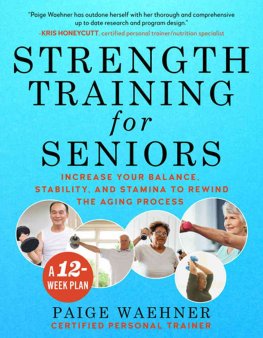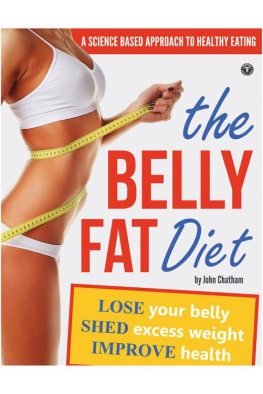

Copyright Paige Waehner 2022
All rights reserved. No part of this book may be reproduced in any manner without the express written consent of the publisher, except in the case of brief excerpts in critical reviews or articles. All inquiries should be addressed to Skyhorse Publishing, 307 West 36th Street, 11th Floor, New York, NY 10018.
Skyhorse Publishing books may be purchased in bulk at special discounts for sales promotion, corporate gifts, fund-raising, or educational purposes. Special editions can also be created to specifications. For details, contact the Special Sales Department, Skyhorse Publishing, 307 West 36th Street, 11th Floor, New York, NY 10018 or .
Skyhorse and Skyhorse Publishing are registered trademarks of Skyhorse Publishing, Inc., a Delaware corporation.
Visit our website at www.skyhorsepublishing.com.
10 9 8 7 6 5 4 3 2 1
Library of Congress Cataloging-in-Publication Data is available on file.
Cover design by David Ter-Avanesyan
Cover photographs by Getty Images
ISBN: 978-1-5107-6966-3
Ebook ISBN: 978-1-5107-6967-0
Printed in China
Contents
Introduction: Getting Older and Gaining WeightIts Not Inevitable
R emember when you were in your teens and twenties? If youre like me, you never gave a thought about getting older and how your body might change. We feel invincible when were younger and never expect to feel anything different.
Fastforward 20 or more years, and a lot of things have changed in our bodies, our minds, and our lives. Just think how different things are when you get into your forties, fifties, sixties, and beyond.
Not only have your priorities changed, but youre no doubt dealing with many of the physical effects of getting older.
Its normal to slow down a little. After being alive for so long, were bound to have the scars to prove that. Youve probably had surgeries, injuries, chronic pain, and other damage that make your body hurt more or just get in the way of feeling good enough to exercise.
Another thing that happens as we get older is that our bodies start to change, particularly where we store fat. You may notice that you start getting more belly fat, and this can happen even if you dont actually gain weight on the scale.
Gaining fat around the middle happens to most of usmen and women alike as we age. One of the main reasons for these issues is due to hormonal changes. If youre a woman in your forties, your estrogen starts to decline, sometimes it starts in in your mid-thirties. If youre a man, your testosterone starts to decline as well around the same age. These hormonal changes lead to a number of things:
 Weight gain
Weight gain
 Weak bones
Weak bones
 Depression
Depression
 Headaches
Headaches
 Fatigue
Fatigue
 Brain fog
Brain fog
 Mood swings
Mood swings
 Hot flashes
Hot flashes
 Difficulty sleeping
Difficulty sleeping
 Generally feeling like you spend most of your time entering a room and not remembering why you went in there
Generally feeling like you spend most of your time entering a room and not remembering why you went in there
BELLY FAT AND WEIGHT GAIN
One study published in the journal Climacteric suggests that hormonal changes in women during perimenopause substantially contribute to increased abdominal obesity which leads to additional physical and psychological morbidity.
Studies also show that, like women, men typically show increases in belly fat with age and decreasing hormones, putting us all in the same boat of more belly fat.
Women typically hold their body weight around the hips and thighs but, when you go through perimenopause and menopause, you quickly find that your fat stores shift right to your belly.
Men typically hold extra weight in their bellies, only adding to that extra fat as they get older and hormones change.
This can happen even if youve changed nothing about your eating habits or exercise routines, which makes it all the more frustrating.
Here are two things I want you to know if youre in this situation: Youre not alone, and its not your fault.
While scientists know we gain belly fat during menopause and, for men, andro-pause, its only been in recent years that theyve found out why. As the experts say, Proteins, revved up by the estrogen drop, cause fat cells to store more fat.
What that means is that your body just naturally stores more fat without making a single change to your exercise and nutrition habits. Worse, you dont even get to enjoy that piece of cake or slice of pizza you passed up because you were trying to be healthy.
And how much weight you gain varies from person to person. One study published in the International Journal of Obesity suggested that some women can gain up to 12 pounds eight years after menopause. For men, one study found that, per decade, the average male gained about 3.3 pounds around the waist per decade. That adds up to about three quarters of a inch.
But, even if you dont gain weight, you may notice your waistline expanding as your hormones keep changing. Again, these are normal changes, but they arent written in stone.
The nice thing is that theres something we can do about it. No, well never be our younger selves, thats just the way aging works. But we can be our best selves now no matter whats going on in our lives and bodies.
Learning more about what happens as we get older can help us make sense of what we can and cant control.
AN OVERVIEW OF HOW OUR BODIES AGE
Were going to get into the details of perimenopause, menopause, and, for men, what is called andropause to learn what happens to our bodies as we get older, but I want to pull back and focus on the big picture.
There are a variety of things that contribute to weight gain as we get older, things Ill cover later in this book in detail. But I think its really important to understand that there are a lot of moving parts here and you cant always tackle all of them at the same time.
Thats okay. Were here to figure out whats going on and how you can get started with a program that will help target multiple goals at the same time.
Here are just a few things that happen as we get older:
 Hormonal Changes As mentioned before, estrogen levels tend to become more erratic, which may make your periods shorter, longer, or even skip months at a time. For men, waning testosterone affects sex drive, muscle loss, and more fat around the belly.
Hormonal Changes As mentioned before, estrogen levels tend to become more erratic, which may make your periods shorter, longer, or even skip months at a time. For men, waning testosterone affects sex drive, muscle loss, and more fat around the belly.
 Stress As we get older, stress takes a strain on our bodies and minds. Chronic stress causes us to gain weight, especially in the belly, and studies show that aging causes oxidative stress way down in our mitochondria that can lead to damage in the body and aging.
Stress As we get older, stress takes a strain on our bodies and minds. Chronic stress causes us to gain weight, especially in the belly, and studies show that aging causes oxidative stress way down in our mitochondria that can lead to damage in the body and aging.
Next page














 Weight gain
Weight gain